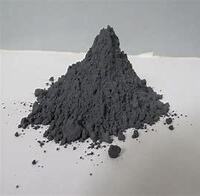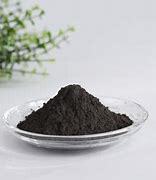High-Quality Silicon Carbide Products | Advanced Ceramic Solutions
** Silicon Carbide vs. Carbide: Can This Abrasive Duo Deal With the Grind? **.
(will silicone carbide grind carbide?)
Image two difficult materials stepping into a gritty sector. One is silicon carbide. The various other is carbide. Both are renowned for their hardness. Both are used in grinding, reducing, and shaping tough things. Yet here’s the large question: Can silicon carbide actually grind routine carbide? Let’s go into this face-off.
First, recognize your boxers. Silicon carbide (SiC) is an artificial product. It’s made by blending silica sand and carbon at crazy-high temperatures. The outcome? A super-hard ceramic that pokes fun at warmth, wears down gradually, and stays solid under pressure. Carbide, though, usually implies tungsten carbide. It’s a metal-ceramic mix. Believe tungsten particles glued along with cobalt or nickel. This combo makes it incredibly challenging. It’s the go-to for drill bits, cutting tools, and anything needing to endure heavy wear.
Now, firmness matters below. The Mohs scale places minerals from 1 (soft as talc) to 10 (hard as ruby). Silicon carbide kicks back 9-9.5. Tungsten carbide? In between 8.5-9. So, silicon carbide is slightly harder. In grinding, the regulation is basic: The grinder needs to be more difficult than what’s being ground. By that logic, silicon carbide * need to * grind tungsten carbide. However the real world isn’t that straightforward.
Grinding isn’t practically hardness. It’s about just how the materials interact. Picture scrubing two rocks with each other. If one is a little harder, it’ll use the various other down. However if both are extremely hard, things get untidy. Silicon carbide grains are sharp. They can damage tungsten carbide. However tungsten carbide isn’t a piece of cake. It fights back. This fight creates heat. Heat can blunt silicon carbide’s sides much faster. It also takes the chance of harming the tool or work surface.
An additional point: Silicon carbide is weak. Strike it wrong, and it chips or splits. Tungsten carbide is tougher. It bends a little before breaking. This sturdiness means tungsten carbide devices last longer in harsh jobs. Utilizing silicon carbide to grind it may operate in concept. In practice, you ‘d require ideal conditions. Assume low heat, precise stress, and perhaps a cooling system. Otherwise, you’ll waste time, energy, and money.
What about real-world use? Some markets do utilize silicon carbide abrasives for tough jobs. Grinding tungsten carbide? It’s possible, however not suitable. The majority of workshops adhere to diamond tools. Rubies rate an ideal 10 on the Mohs range. They cut with tungsten carbide like butter. But rubies cost a fortune. Silicon carbide is less expensive. For small work or budget configurations, it’s a suitable alternative. Just expect slower progression and even more frequent tool changes.
Right here’s one more angle. Silicon carbide isn’t just for grinding. It’s utilized in sandpaper, grinding wheels, even bulletproof vests. Its heat resistance makes it terrific for automobile brakes and heating system components. Tungsten carbide? You’ll locate it in drill bits, mining devices, and precious jewelry. Each product has its lawn. Crossing them right into each various other’s areas? It functions … but with limitations.
Price contributes as well. Ruby tools are pricey but reliable. Silicon carbide is budget-friendly however less effective. Tungsten carbide tools equilibrium cost and toughness. Picking between them depends on the work. Required to grind a few carbide components? Silicon carbide may do. Running a manufacturing facility? Spend lavishly on rubies.
One last point: Damage. Grinding challenging products puts on down tools. Silicon carbide abrasives shed their side quickly against tungsten carbide. This implies more downtime for substitutes. For accuracy work, that’s an issue. Consistency drops. Mistakes sneak in.
(will silicone carbide grind carbide?)
So, can silicon carbide work carbide? Yes, however barely. It resembles using a wooden sword to combat an iron guard. It * can * make a dent, however you’ll need persistence. For serious grinding, rubies still guideline. Silicon carbide stays in its lane– great for lots of work, simply neither. Unless you’re in a pinch. After that, hey, give it a shot. Just keep the fire extinguisher helpful.






